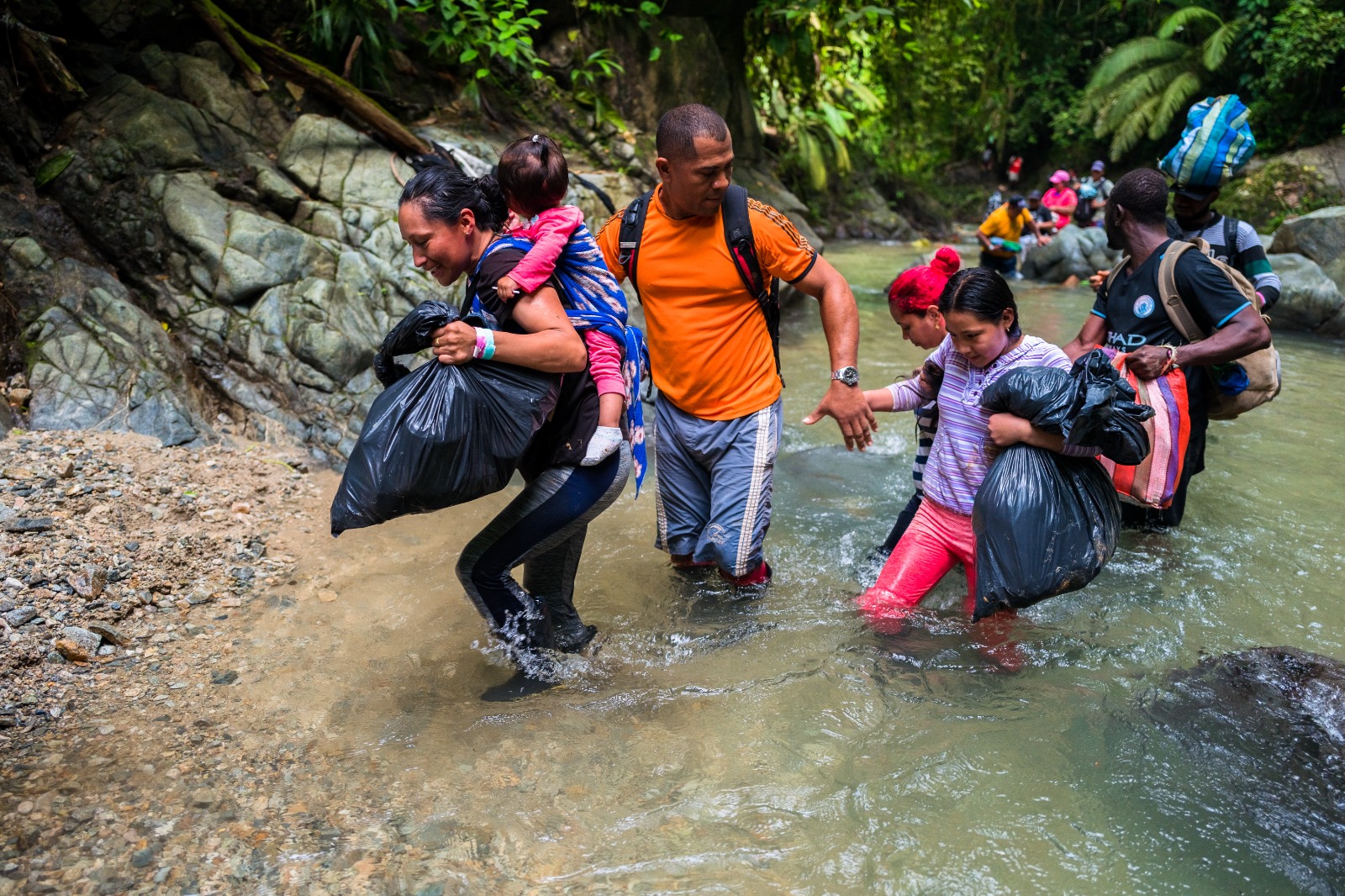New Rules Target Migrants Trying to Make It to the US Through Latin America
El Salvador is now charging all African citizens who want to transit through its airports $1,300 per person.

In a matter of days, Haiti abruptly halted flights to Nicaragua, El Salvador announced a $1,300 fee for African passengers with a layover in the country, and Mexico issued new visa obligations.
The new requirements are meant to stop migrants from crossing these Latin American nations en route to the U.S., and are an effort to appease the administration of U.S. President Joe Biden as it struggles to contain a record number of migrants traveling to the U.S. border through Central America and Mexico.
By helping the Biden government limit migration, countries stand to gain good will and even millions of dollars in foreign aid from the U.S. There are also signs that authoritarian regimes like Venezuela and Nicaragua are seeking to use collaboration on migration as a bargaining chip to get the U.S. to remove crippling sanctions.
Among the most notable new restrictions is Haiti’s decision to suspend flights from Port-au-Prince to Nicaragua. In recent months, thousands of Haitians have flown to Nicaragua, which doesn’t require Haitians to have a visa to enter, and from there traveled north to the U.S.-Mexico border. By stopping these flights, Haitians will have to instead fly to South America and begin a much longer and more difficult journey from there.
El Salvador also took the drastic measure of imposing a $1,130 fee on passengers with a layover in the country who are traveling on passports from India or any African country. Airlines will have to notify Salvadoran authorities of passengers who come from those nations. The new fee was announced after El Salvador President Nayib Bukele met with U.S. Assistant Secretary of State for Western Hemisphere Affairs Brian Nichols, Bloomberg reported.
It also comes just weeks before El Salvador is set to host the Miss Universe competition, which will bring contestants from around the world to the small Central American country. In a statement, the Miss Universe Organization said that the new fee wouldn’t apply to contestants and their teams because their final destination is El Salvador.
Also in October, Mexico announced that it will require passengers from around the world to have a visa to enter Mexico—even if just for a layover. The restrictions don’t apply to passengers with U.S. and European Union passports or with visas to those countries. The decision appears aimed, in part, at halting a growing number of Cubans who use a connecting flight in Mexico to reach Nicaragua, where they can enter without a visa. It has become a popular migration route for Cubans to fly to Nicaragua to begin their journey by land to the U.S.
The Biden administration is also taking steps to ramp up deportations—at least in theory.
This month, it resumed deportation flights to Venezuela, a huge development considering the countries don’t have diplomatic relations and Venezuela’s president faces charges in the U.S. of “narco-terrorism.” Since then, the U.S. has deported a total of 362 people to Venezuela on three different flights, according to the Venezuelan government. Still, that’s a tiny number compared to the more than 50,000 Venezuelans who entered the U.S.’s southern border in September alone.
Shortly after the resumption of the flights, the U.S. announced it would ease sanctions on Venezuela’s oil industry. In exchange, Venezuela also agreed to internationally monitored presidential elections next year.
In April, the U.S. also began once-a-month deportation flights to Cuba for the first time since 2020. But the numbers too are minimal, and seem more about sending a message than deporting large groups of people. The October deportation flight to Cuba had just 27 migrants on it, according to local Cuban media.
“It's all about being able to publicize that they are sending planes back to Cuba so don’t come because you might get deported. But the odds are pretty good you won’t be,” said Tom Cartwright, who tracks deportation flights with the nonprofit Witness at the Border.
There are signs that more policy changes could be coming. Foremost amongst them is the Biden administration’s plan to funnel millions of dollars to Panama to help the Central American country deport migrants long before they reach the U.S. border. The plan is unprecedented because U.S. foreign aid has never been specifically directed to help a country carry out deportations. The pilot program would cost $10 million, according to Axios.
New Jersey Sen. Bob Menendez had blocked the pilot program for months, according to Axios, but it's now moving forward after Menendez relinquished his position as chair of the Senate Foreign Relations Committee after being indicted on bribery charges.



